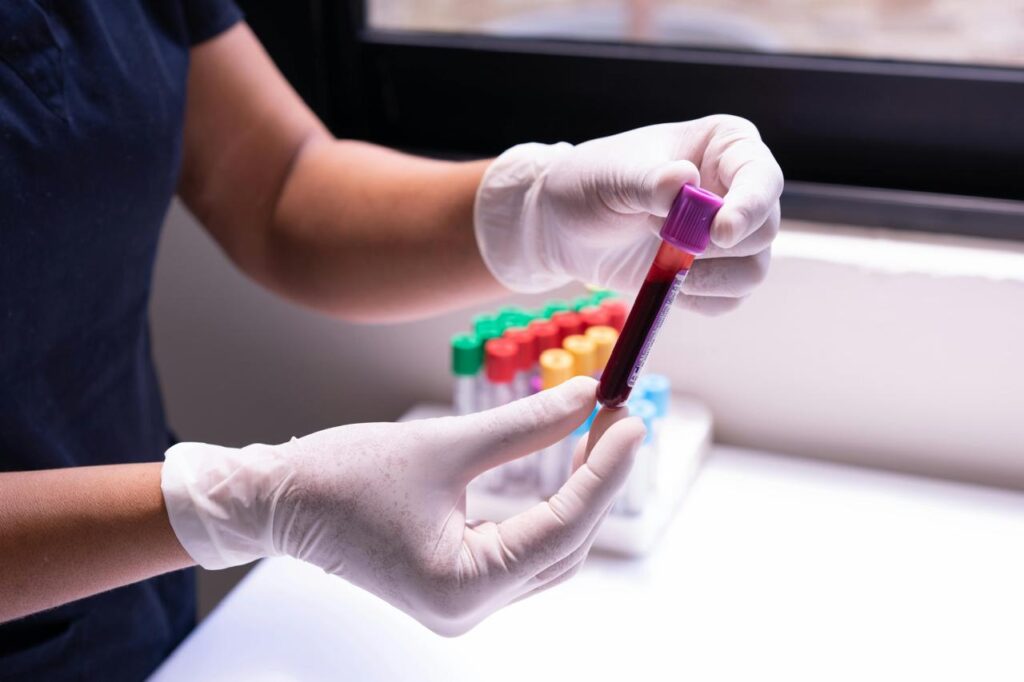Maintaining your health and identifying any problems at an early stage requires that you undergo routine blood testing. For the purpose of assisting medical professionals in evaluating various areas of your health, these tests offer useful insights into the functioning of your body. When you perform blood tests on a yearly basis to monitor vital markers, you equip yourself with knowledge that can help you prevent or manage certain significant health disorders.
1. Importance of Regular Blood Tests
Blood tests are proactive instruments that are utilized in the field of preventative healthcare. Through the examination of indicators such as cholesterol levels, blood sugar levels, and liver enzymes, they make it possible for medical specialists to assess the state of your general health. The results of these tests can also assist in the identification of underlying health concerns such as anemia, infections, and thyroid abnormalities. These conditions cannot present symptoms right away, but they can have a substantial influence on your overall health over time.
2. Early Detection of Health Issues
A routine of blood tests performed once a year makes it easier to identify potential health problems at an earlier stage. In the case of elevated cholesterol levels, for instance, which can be discovered through normal blood tests, actions can be initiated to reduce the risk of cardiovascular illnesses. In a similar vein, irregularities in blood sugar levels can be an indication of prediabetes or diabetes, which enables earlier care and adaptations to lifestyle in order to avert consequences.
3. Monitoring Chronic Conditions
Blood tests should be performed on a regular basis for people who are managing chronic illnesses such as diabetes or hypertension. Using these tests, the effectiveness of medications is monitored, the development of the disease is tracked, and early problems are identified. In order to adapt treatment regimens, optimize medication dosages, and alter therapy as necessary in order to maintain health and prevent complications, they provide crucial data that healthcare providers can use.
4. Assessing Organ Function
When evaluating the health of important organs like the kidneys and liver, blood tests are an essential component of the diagnostic process. Markers such as creatinine levels are measured to determine renal function, while liver enzymes are measured to determine liver health. Monitoring these markers on a yearly basis assists in the detection and management of illnesses such as renal disease and liver disorders, ensuring that early intervention and appropriate medical therapy are provided.
5. Screening for Infectious Diseases
A proactive strategy for detecting disorders such as hepatitis and HIV is provided by annual blood tests, which include screenings for infectious diseases. The timely beginning of therapy is made possible by the early discovery of these diseases, which in turn reduces the risk of complications and exposure to other people. Hepatitis C screens, in particular, are extremely important since an early diagnosis can lead to effective treatment choices, such as access to freely available Hep C treatment from a top-notch healthcare unit.
6. Personalized Healthcare Management
Blood tests performed on an annual basis include screenings for infectious diseases, which provide a preventative method for identifying problems such as HIV and hepatitis. The timely beginning of therapy is made possible by the early discovery of these diseases, which in turn reduces the risk of complications and transmission to other individuals. Specifically, screens for blood are extremely important since an early diagnosis can lead to effective treatment choices.
7. Empowerment Through Knowledge
Individuals can make decisions about their health by gaining knowledge about their health state through regular blood testing. You will be able to take an active role in your healthcare journey if you have a thorough awareness of the indicators and trends that occur within your body throughout time. With this information at your disposal, you will be able to successfully engage with your healthcare providers to achieve the best possible outcomes for your health and to make well-informed decisions that will improve longevity and quality of life.
Conclusion
When it comes to early health issue discovery, chronic condition monitoring, organ function assessment, infectious disease screening, and individualized healthcare management, annual blood tests are essential instruments in the field of preventive healthcare. You can preserve maximum health and well-being by making routine blood testing a priority. This will help to ensure that any potential health issues are swiftly and efficiently handled.



